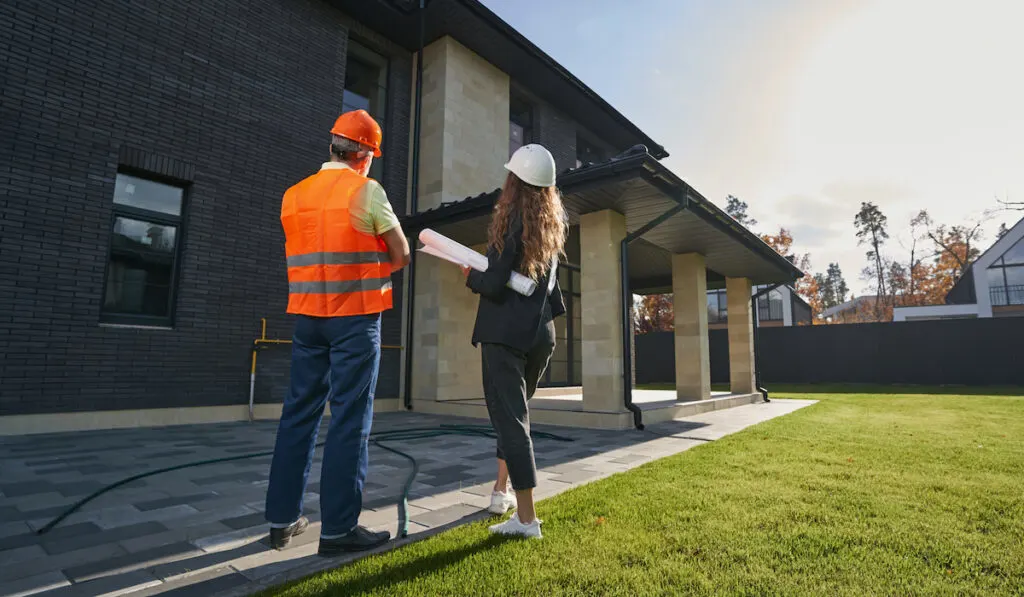The worst mistake you could ever make is to buy a home without previously doing sufficient research. Think about it. You go through a whole list of things to look at before purchasing a car: you take it for a spin, you check under the hood, check the car facts, etc. Well, why not do all this for your new home? After all, it’s the most complex and most important financial decision in your life.

But how do you know you are making an adequately informed choice? By listening to the opinions coming only from people who can provide grounded advice, people who have experience in real estate, title industries, and home improvement. People who you trust. And of course, by having enough facts that back up your decision.
Go through this checklist to ensure yourself you are making a smart decision and with as much knowledge as possible before you put your name on the dotted line.
Table of Contents
1. Know your credit score.
Your credit score will determine lots of important factors and terms of your loan, like getting a low-interest rate. A healthy score should be over 700.
If yours is lower, get ready to make improvements and repairs. Getting this number fixed is crucial if you’re trying to purchase a property.
2. Get your pre-approved loan.
This is one of the most important steps in the process, not to be confused with the mortgage pre-approval and the pre-qualification. The lender will verify your employment, income and credit score to get pre-approved. Getting this letter will let you compete with other buyers for the home of your dreams.
Why do you need to be pre-approved for a home loan? Sellers want to know how qualified you are to make this life-changing commitment and be sure that you will not get turned down when asking for the financing. This will let them know what sort of mortgage loan you can work with and how much should be considered for a down payment.
Important: You will get the loan as long as your credit score or financial situation does not change. So avoid doing anything that can affect it, like changing jobs or getting a car loan.

3. Make sure you’re getting the best deal.
Do research. Shop around. You’re not going for the first house you see, so don’t go with the first lender you speak to. Make sure you are getting the lowest APR (annual percentage rate).
Make sure you know and trust your agent. Interview several real estate agents before sticking to the one you feel most comfortable with.
Go for a full-time realtor with a history of successful sales, especially recent sales. Test and see if he/she knows the area well and understand the difference in market value between properties.
4. Do you have a list of every expense?
Prior to making the purchase, talk to your real estate agent and ask him about what expenditures to consider if you buy that specific property.
It’s not just getting the loan and paying your mortgage. Lots of fees come with buying a home like insurance, association fees, property taxes, repairs, emergencies, the list goes on. Make sure you have enough money to cover these costs.

5. House or condo? Buy the space you need and afford.
No matter how fast you fell head-over-heels for the property, don’t buy a bigger space than what you and your family need. Be aware of all the details, pros and cons of buying a house and a condo.
Having a condo is incredibly convenient because you don’t have to take care of the maintenance, but here will be fees and certain restrictions. On the other hand, a house means more space but you have to keep up with the maintenance yourself.
Some properties are part of an HOA (homeowner association) and will require to pay dues to it if you want to live in the neighborhood. These fees are for covering maintenance, security, and other costs.
Be aware that while some of these HOA are well organized and easy to work with, some can be formed by difficult people, so know what you are getting yourself into before moving in the community.
Consider as well the location and the neighborhood. Is it a safe area? Is it close to schools, malls, stores, parks? Would you rather live in a suburb or near the city? How close is it to the freeway? Familiarize yourself with the neighborhood. Make sure your realtor is well informed on how much homes are worth there so you don’t overpay.
6. Do you know the value of the property you are purchasing?
This is a conversation you need to have before you sign, not later. You do not want to be a slave to your mortgage loan and you do not want to overpay.
Inspections and appraisal fees can be expensive if you do not understand the value of your new property. If you consider you are overpaying, talk to your bank or your seller.

7. Have you verified all the information in the listing?
Your agent should be knowledgeable about what is considered a fixture and what personal property is. All the information you are provided about the household should be accurate and verified, meaning you should be clearly informed about what stays and what goes in a home sale. This is a common situation for realtors and one with experience should be prepared to deal with it.
A fixture is something that has been attached to the house and is regarded as part of the property. Personal property is something that is not part of the home, like a washer and dryer system that is not built-in.
Your purchase contract will detail any personal property included in the sale of the home. If there is some aspect of the home you want to ensure stays, remember to ask your real estate agent to specifically name it in the purchase contract.
This is especially common with farm and ranch properties where personal property like tractors and equipment are sometimes part of the sale. Just remember it is better to over clarify than be disappointed when you do your final inspection and find elements you thought were “fixtures” were removed.

8. Are you working with a reputable home inspector?
The inspector must be part of the American Society of Home Inspectors or at least someone your realtor knows, trust and has experience working with. Home inspectors uncover important and serious issues like out-of-date wiring, foundation problems, pests, mold, roof damage, problems with insulation, etc. A seller might try to hide these issues, so always rely on a professional.
The home should be in excellent condition, meaning there should be no moisture flowing outside the pipes, the roof should be functional, the electrical system should be up to par (no knob and tube wiring), etc.
Mold can cause serious respiratory problems, so be sure that there is no mold in the property before signing the contract. Check for radon in the water and air as well. Also, a home built with asbestos (a major building material used in the ’70s) can be a cause of high-cost repairs and renovations and lowering the resale value.
If there is a problem that needs fixing, the seller will pay for the fixture or will have to make a new (and lower) offer. For example, removing radon can cost you from $1000-$7000. Yikes! That money should not come from your pocket.
9. Are the renovations in the property up to code?
All renovations have to be done with a permit (meaning it was reviewed by an inspector). A seller might not have a permit because the assessed value increases when the house gets bigger (which means he has to pay more taxes). Or because he/she didn’t want to pay to get such permits, or was just too lazy to get one (which is completely unacceptable).
Renovations completed with no permit will become an issue for you in the future, especially if you eventually want to re-sell. Get that taken care of before committing to the purchase.

10. Check the direction the windows and home are facing.
Wait, what? Yes! The direction the home faces can be a deal-breaker. By knowing what parts of the house get most sunlight and for how long you can determine if this dwelling is right for you and your needs.
Lots of sun can make a house much warmer, which means more money will be needed to cool it off. Maybe you are passionate about having a garden with a back yard, but too much sun can burn your plants.
Or perhaps you want to sunbathe in the afternoon by your pool. Whatever your preference is, let your real estate agent know what you expect of your new home.
11. Look into the future.
Do you see yourself living and growing old in your home? Do you want to be there a few years and sell?
Know the potential growth of the investment you are about to make. Consult your realtor and ask them if they consider the value in the homes in the area will rise. Maybe the property will increase its value because of renovations you made, or maybe because it is located in a growing area.
The Bottom Line
Before you make buy your new home, be sure that you are making an informed decision. Don’t rush in and know all the facts before you make this huge life commitment. Good luck!
